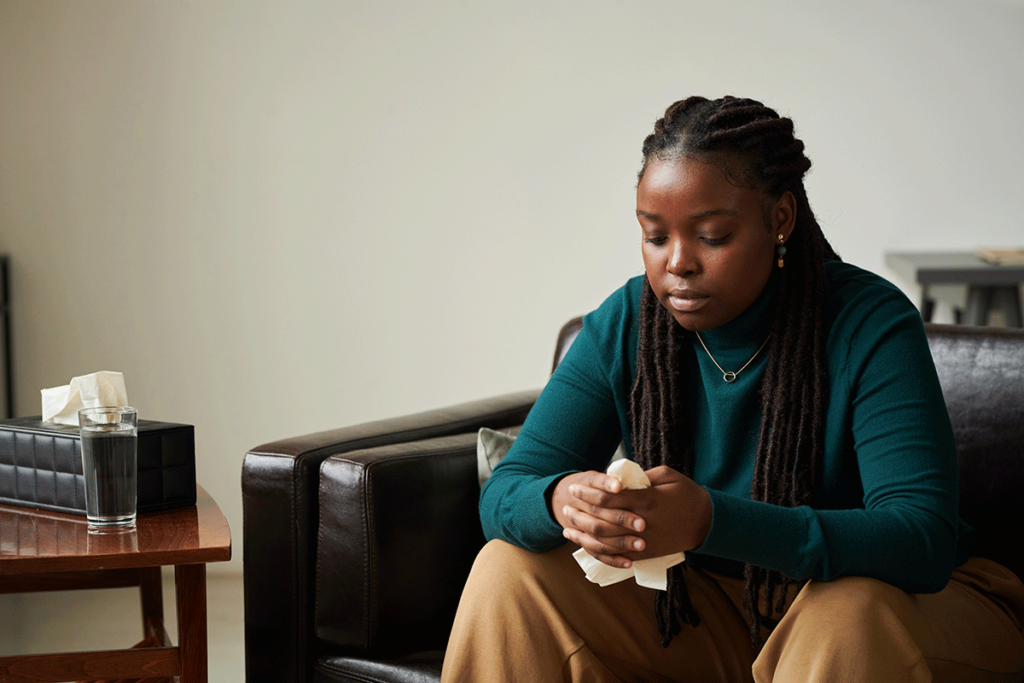Many people have heard of obsessive-compulsive disorder (OCD). This is an anxiety disorder involving recurring, unwanted thoughts, ideas, or sensations (obsessions) that make people feel compelled to do something repetitively (compulsions). However, what’s not as widely talked about is OCD emotional hypersensitivity. This is a layer of symptoms that may occur in some people with OCD. It can manifest as intense emotional reactions, a strong awareness of external stimuli, and a tendency for people to overthink or worry.
At Honey Lake Clinic, we’re here to help you better understand your mental health and learn meaningful, productive coping skills, no matter the cause or diagnosis. Call 888.428.0562 today to find out more about our OCD treatment.
A Closer Look at OCD
OCD is a mental health condition characterized by repetitive and intrusive thoughts that can lead people to perform behaviors to help them cope with those thoughts. OCD symptoms can be extremely disruptive to a person’s personal and even professional lives. Some examples of behaviors that someone with OCD may experience are:
- Excessive cleaning – Constantly washing hands, cleaning household items, or sanitizing surfaces to avoid contamination or germs.
- Checking – Repeatedly checking if doors are locked, appliances are turned off, or personal items are in place to prevent harm or mistakes.
- Counting – Engaging in specific counting rituals, such as counting steps, objects, or actions, often to achieve a sense of order or prevent bad luck.
- Arranging – Organizing items in a particular order or symmetry, feeling compelled to adjust them until they feel “just right.”
It should be noted that this is not an exhaustive list, and not everyone’s OCD manifests in the same way. Your symptoms may be slightly different, or you may not have experienced some of the symptoms listed here.
What Is OCD Emotional Hypersensitivity?
Some individuals with OCD may also experience sensory issues or OCD emotional hypersensitivity. Understanding the distinction between the two can help people determine the best course of treatment and most effective coping skills for the client to learn.
OCD emotional sensitivity is a combination of OCD and sensory issues. Experiencing both can impact various aspects of life, including work, home, and relationships. There are several factors that describe OCD sensory issues, including:
- Intense emotions – An individual may experience emotions strongly or cry easily
- High levels of compassion and generosity – A caretaking personality who desires to comfort and help when others are suffering
- Sensitive to criticism – Criticism doesn’t feel constructive so much as it feels personal and painful
- External stimuli sensitivity – An awareness of things that others are oblivious to. Like the buzz of fluorescent lights above your head, the sound of someone chewing, or the scent of someone’s perfume
- You overthink and worry – You notice every detail and overthink what is likely a simple decision for others
If you believe you’re struggling with OCD sensory issues, and find yourself feeling depressed or anxious because of those sensitivities, compassionate help is available to you. Contact Honey Lake to work with a therapist who can help you learn to manage these sensitivities and improve your quality of life.
Call Honey Lake Today for Help with OCD Overstimulation
We all need assistance with one thing or another over the course of our lives. It’s finding the right help that’s key to your success. At Honey Lake we want to be the support you need to make progress and live a life that enables you to reach goals and live out your dreams. If you’re experiencing OCD overstimulation and wondering if you might be, today is the day to give us a call.
You can speak with a member of our caring team at 888.428.0562 or by submitting our online contact form. Don’t wait another day to find someone to walk alongside you on your mental health journey.
